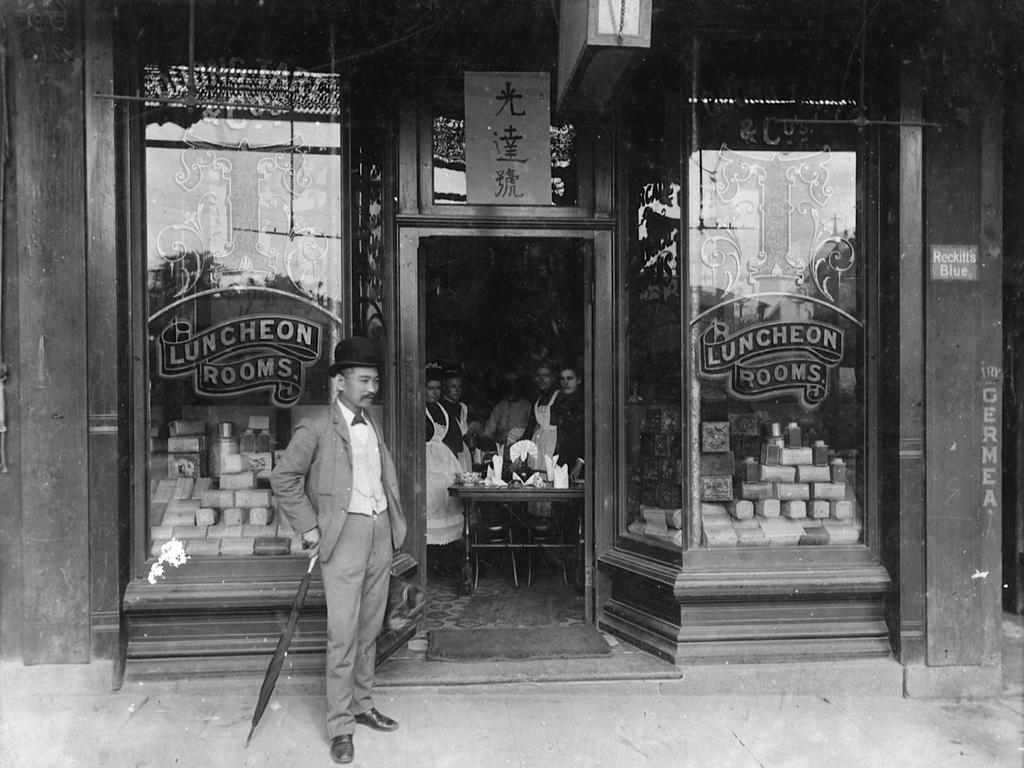About Quong Tart 梅光達
Moy Quong Tart was a successful restaurateur, tea and silk merchant, anti-opium campaigner, and philanthropist.
He travelled to the NSW goldfields as a child where he made his fortune. As an adult he moved to Sydney where he established himself as a tea merchant and restaurateur. Despite the prevalent racism against Chinese people, Quong Tart was highly regarded by the government and public alike as an influential public figure and community advocate.
Location
Accessibility
Category
Share and save

An early arrival
Moy Quong Tart (Cantonese) / Mei Guangda (Mandarin) / Quong Tart (English) was born in Duanfen, Xinning (now Taishan), China in 1850. At age 9, he travelled to Braidwood in the NSW Southern Tablelands NSW with an uncle.
Success on the goldfields
He was taken in by a local Scottish family and later by an English family, who were charmed by the Chinese youth who spoke with a Scottish accent. While living with them he converted to Christianity.
As a teenager, Quong Tart acquired shares in gold claims and amassed considerable wealth. He became a British subject by naturalisation at the age of 21. Quong Tart was often involved in community sports such as horseracing and cricket and his friendly disposition and sense of humour made him popular in both the Anglo-Australian and Chinese communities.
Tea room innovations
After a trip back to China, he went into business in Sydney as a tea and silk merchant. His tea shops were intended purely for trade, but realising his customers enjoyed tasting the tea he began opening tea rooms in 1882. Modest at first, these evolved to be two storeyed elegant dining rooms offering facilities for wedding breakfasts and other functions. By 1889 he had outlets in King Street, George Street, in the Sydney and Royal Arcades, at Haymarket, at the Zoo and in Newcastle.
With this success, the silk business was abandoned. His entrepreneurial flair led to the opening of his Elite Hall in December 1898 which featured an exotic dining and concert hall at the Queen Victoria Market (now QVB) site with separate rooms for ladies’ rest and repose and a stage for entertainments. British fare including hot buttered scones was served by attentive waitresses, and customers from all walks of life were welcomed as honoured guests. His staff enjoyed benefits that were rare at that time, including holiday and sick pay.
Community and philanthropy
Quong Tart worked tirelessly for his community. He had been warned by his father of the dangers of opium and became an avid campaigner against opium smoking. He was elected a Freemason, a Forester and an Oddfellow. Within these lodges and independently he provided generously for the poor, homeless and uneducated. He was a founding member of the Lin Yik Tong Society, a charitable association of Chinese merchants. He often lobbied political leaders including Henry Parkes and Edmund Barton on behalf of the Chinese community.
‘Friend to all, enemy to none’
Quong Tart was widely admired and known for his witty sense of humour. His speeches always drew applause and laughter. He married Margaret Scarlett, an English woman, in 1886 and the couple had 6 children and lived in a house he built in Ashfield, Gallop House. A liberal Christian, Quong Tart baptised his children into different branches of the church to ensure none were favoured above others. Sydney society was shocked when he was brutally attacked at work by an intruder in 1902.
A grand farewell
He never fully recovered from the attack and died, aged 53 at Gallop House after a bout of pleurisy. Having been granted Mandarin status, Quong Tart was buried in his Mandarin robes with his Freemason apron draped over his coffin. About 1500 people attended his funeral procession, which saw the Chinese community, government officials and friends turning out in force.
